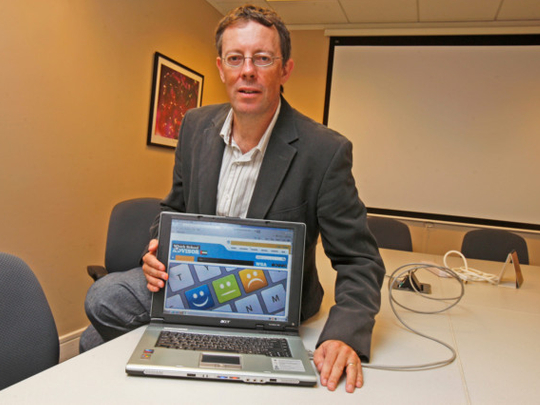
Dubai: UAE universities fail to attract students because they fall short of expectations, a survey by an online educational consultancy revealed.
The countrywide survey, conducted by WhichSchoolAdvisor.com during February, stated 98 per cent of respondents – students, parents and educators - find UAE universities lacking compared to overseas universities.
Consultancy co-founder James Mullan said: “UAE universities were seen offering less credible quality degrees by 54.72 per cent of respondents, while the faculty delivering courses was considered less able by 54.72 per cent.”
He said other areas like campus life and brand/reputation of universities in the UAE also scored poorly, with over 40 per cent of respondents. Mullan said students choosing to study at UAE campuses of international universities do so with one eye on the ability to transfer to the parent university at a later stage. “This is a significant advantage of international campuses over UAE-specific universities.”
He said the only area where UAE universities scored over global names is that they were seen as an opportunity to stay and work in the UAE.
Only 18.87 per cent of respondents believed a UAE degree offers a greater chance of securing a job in the UAE on graduation.
Mullan said: “UAE students, like their international peers, are clearly looking at the immediate financial impact of university on their parents’ bank balance, but ultimately what matters most is the return on investment - a degree that can set them on their chosen career path.”
When asked what UAE-based universities lack compared to universities overseas, just 1.89 per cent of respondents said ‘They don’t lack anything’.
Mullan said neither students nor parents that took part in the survey believed a UAE degree will be as helpful as an international one when looking for a job - inside or outside the UAE.
“In total, 54.35 per cent of respondents said recruiters value an international degree more than a local one with 6.52 per cent saying they are valued equally, while only 4.35 per cent thought a UAE-awarded degree was worth more.”
The biggest concern for parents of children remaining in the UAE is the quality of education their children receive. “This was a concern expressed by 71 per cent of respondents, followed by a concern that their children will not be exposed to other, perhaps more competitive countries and environments (64 per cent). Parents also told WhichSchoolAdvisor.com they feared their children were being spoiled and that there were too many lifestyle restrictions for a real university experience in the UAE.”
He said there were many clues for the universities’ improvement found in the responses. They include offering Arabic language study to non-Arabic speakers as a core component of degree courses, placing students in UAE jobs as interns as part of their courses, forging relationships with local employers and acting as feeders of local talent, inclusion of on job practical projects as part of the degree and so on.
He said 58 per cent of respondents felt UAE universities don’t do enough to help students make the transition to life away from home. Topping the list of areas where students were thought to be unprepared included basic life skills and freedom in self-planning.
Mullan said: “Academically, UAE schools have a greater role to play. The real issue here is the skills necessary to pass school examinations do not necessarily include the critical reasoning skills demanded by Year 1 of university.”
He said UAE schools are also falling short in providing students information and knowhow they need when it comes to university choices and applications.











